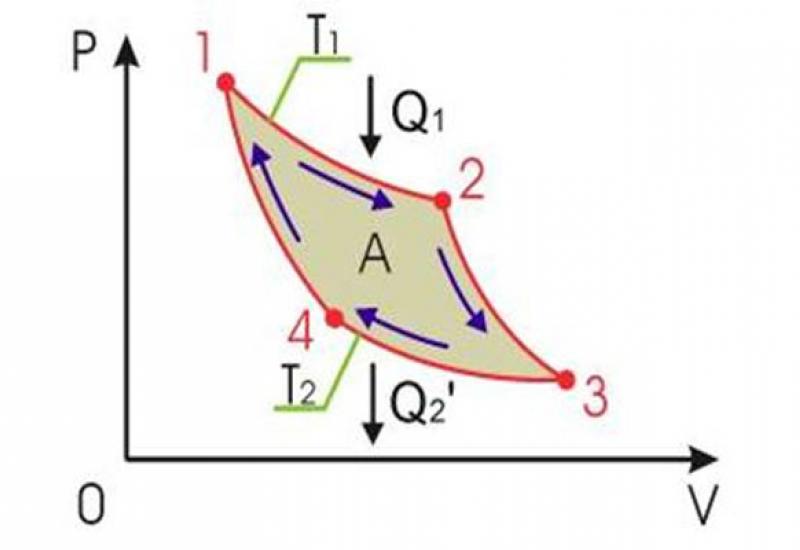Perhaps there’s no polytechnics who would not know about Carnot's theorem, according to which the efficiency of the Carnot heat engine does not depend on the nature of the working fluid. But most students are not only heard about this theory, but also studied in the course of physics or thermodynamics of evidence given by Rudolf Clausius.
This provement is given at any thermodynamics books. And as you know, the provement is based on the second principle of thermodynamics, particularly in the formulation Clausius (Clausius postulate): "Cannot process the only result which would shift the heat from the body to a less heated body warmer." This postulate, as they say in books, is not necessary, as a generalization of empirical data.
Anyway to prove the independence of the efficiency of the Carnot heat engineon the type of working fluid, consider the work of two Carnot heat engine, one of which is the direct cycle, converting heat to work and transferring of heat from hot body to the cold, and the second - in reverse - turning work to heat and transferring heat from the hot to the cold body. Proving the theory, suggest that one Carnot heat engine efficiency is greater than the other, and show that the result of their collaboration can be upgraded less heat from the heated body to a warmer, which contradicts Clausius postulate.
All would be nothing, but in 1947 the Soviet scientist O.A.Huhman R.Klauziusa repeated arguments, which are set out, but instead used the postulate R.Klauziusa "antypostulat", especially: «Cannot process the only result which would transition of heat from a warmer body to body less heated.» Clearly, this "antypostulat" is a false statement, because the process of direct transfer from the heated body to cold is known to all.
However, assuming that Carnot heat engineon efficiency depends on the working medium, you can get a false contradiction with this postulate.
Thus, comparing the arguments of R.Klauziusa O.A.Huhmana considerations, we conclude that one and the same theorem can be proved on the basis of opposing axioms.
How can this be? Think!

